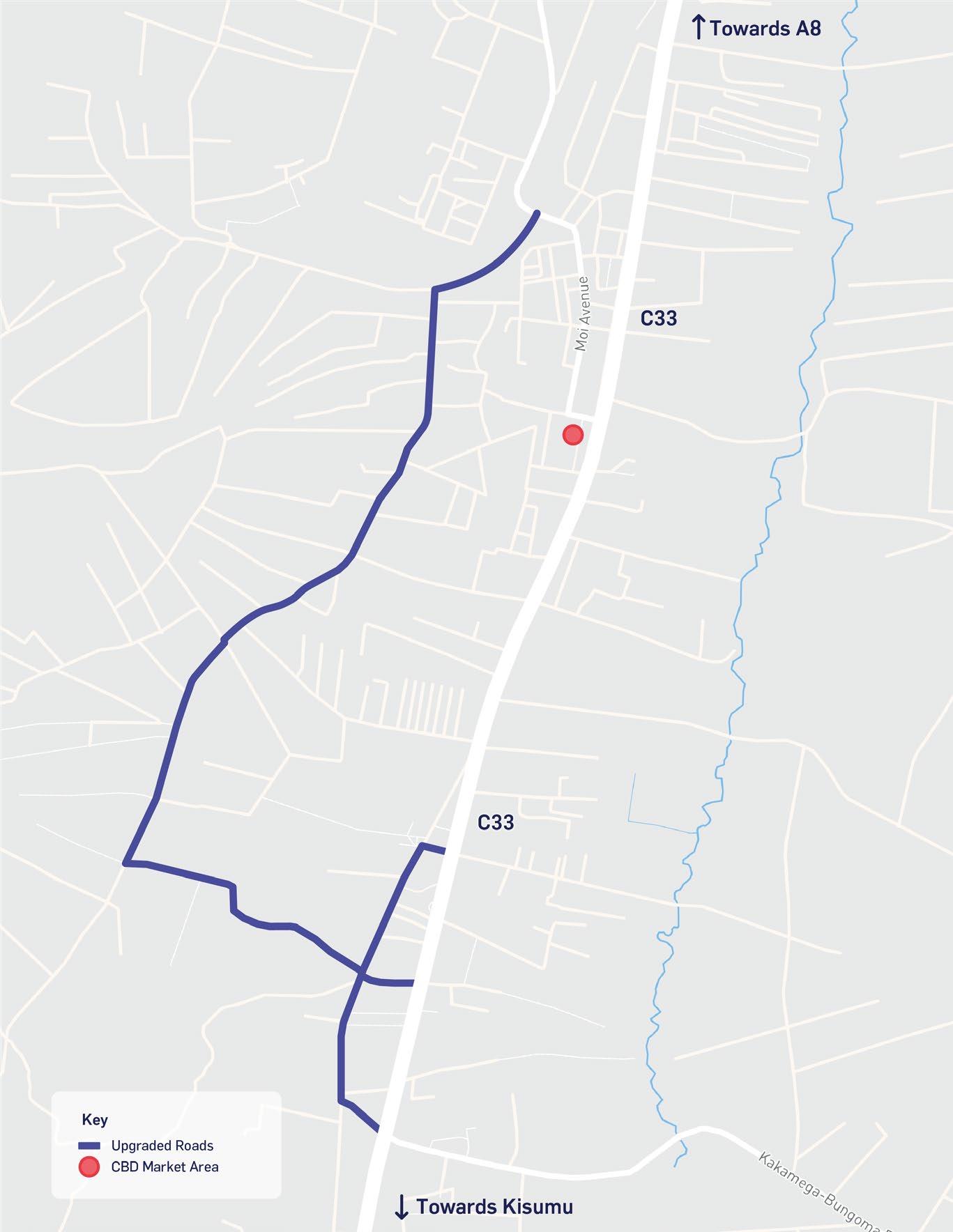
3 minute read
Figure 1-3 – SUED Principles
Physical stakeholder workshops were undertaken including the Kick-off Meeting (KOM) to gather feedback from stakeholders throughout the project. The first workshop KOM, in September 2021, presented the project and process and collated information from over 60 stakeholders in terms of key characteristics, strengths and challenges (captured within the Inception Report). Stakeholders included the Municipal Board, Municipality and County officers, the private sector, civil society groups and non-government organisations and representatives from SIGs.
A business consultation was also undertaken during November 2021 to understand how businesses operate in Bungoma and their views on future growth opportunities and constraints. This consultation was composed of one-to-one interviews with 70 businesses, reflecting Bungoma Municipality’s main sectoral activities. Many of these were small businesses or independent workers – given the nature of the local economy. Each interview was supported with a detailed questionnaire. The Gender and Social Inclusion study (GeSI) involved a related literature review and primary research, covering interviews with key project informants and four focus group discussions. This resulted in the identification of socially excluded groups, of how their exclusion manifests, and processes that perpetuate their exclusion and development of the gender and social inclusion interventions as proposed in this UEP.
A wider stakeholder workshop in January 2022 comprised a visioning exercise for the UEP, emerging development concept and development framework, and reaching consensus with the PSG, Municipality, and key stakeholders on the way forward for the final UEP.
1.4 SUED Principles
The development of the UEP and identification and prioritisation of proposed projects are grounded on key principles that support the programme’s aim to create market-driven growth and build resilience. The Atkins SUED team has defined these principles as:
Figure 1-3 – SUED Principles
Source: Atkins, 2022
Sustainable: The UEP will promote sustainable infrastructure that supports the development of Bungoma Municipality while minimising the environmental impacts of increased population and economic activity in the future, as well as the protection and sustainable utilisation of the abundant natural resources within the County.
Socially Inclusive: The GeSI study has identified social groups that are excluded from the socio-economic activities within Bungoma Municipality (i.e. elderly people, youth, PWD, and women). The UEP aims at including these groups in the decision and development process, VCs’ development, and infrastructure projects, to ensure that their benefits are equitable and accessible to all.
Resilience: The prioritised projects will have to be resilient against shifts in the economy, both for domestic and international markets, to remain competitive. They will also need to be adaptive to the climate change impacts specific to the area such as lesser rainfalls and higher temperatures, while ensuring technological advancement through smart solutions which can be introduced where possible.
Resource Efficiency: To preserve the environmental and marine assets and agricultural land, the UEP will be directing economic growth towards resource efficiency, by integrating the VCs to establish a circular economy promoting minimisation of waste and optimising water and energy use, whilst aiming to promote rural-urban linkages.
While these principles are closely linked and overlap in their definition, each one of them emphasises a different aspect that is not fully captured by the others. Thus, it is important that all four principles are embedded and balanced in the UEP and its implementation. In addition to these principles, it is critical to ensure the UEP develops the competitiveness of the Municipality. At its core, the UEP seeks to create employment opportunities that are accessible to all and set out economic measures with supporting actions and projects that can help directly or indirectly lift the local population out of poverty, whilst supporting crucial livelihoods such as the informal sector. All proposed projects (VCs and infrastructure projects) contained within the UEP have been screened and refined for their contribution to improving livelihoods by considering availability, accessibility, affordability, acceptability, and adaptability, across special interest groups as well as low-income groups, the urban poor, and the informal sector. The aim is to minimize inequalities and improve access to job opportunities for optimum benefits to the overall Municipal communities.
Social exclusion makes it difficult to achieve social objectives, such as reducing poverty, due to often hidden barriers in reaching those who are socially marginalised. Exclusion also causes conflict, and it is almost impossible to achieve economic gains in such conflict environments.
PWD, women, the elderly, and youth in Bungoma Municipality face challenges that are either caused by, or lead to, exclusion, and recommendations for their inclusion are fully integrated in the UEP. People who are excluded are not ‘just like’ the rest of the poor, only poorer. They are also disadvantaged by who they are or where they live, and as a result are locked out of the benefits of development and economic growth.










